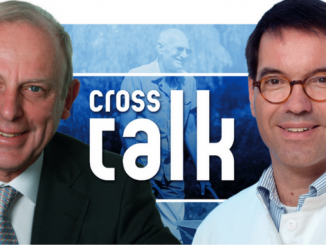More and more people across Europe are finding it hard to access high-quality cancer care in the wake of years of public spending cuts. This Editorial looks at some initiatives to address growing inequalities and argues that everyone involved in planning and providing treatment and care has a key role and responsibility .
 The EU Patient Access Partnership was launched at the beginning of October in response to growing inequities in access to medical treatments that are resulting from cuts in public spending, particularly in countries of southern and eastern Europe. Building on the 2013 Vilnius Declaration on Sustainable Health Systems in Europe, this partnership aims to ensure that European citizens gain access to high-quality and safe healthcare, regardless of where they live. This includes access to modern and costeffective medicines.
The EU Patient Access Partnership was launched at the beginning of October in response to growing inequities in access to medical treatments that are resulting from cuts in public spending, particularly in countries of southern and eastern Europe. Building on the 2013 Vilnius Declaration on Sustainable Health Systems in Europe, this partnership aims to ensure that European citizens gain access to high-quality and safe healthcare, regardless of where they live. This includes access to modern and costeffective medicines.
The European Society for Medical Oncology (ESMO) has taken up this call with the development of a rating scale to evaluate the magnitude of benefit of new anti-cancer drugs. Based on a similar concept to WHO’s Model List of Essential Medicines for low- and middleincome countries, its purpose is to improve access to important new therapies by helping decision makers differentiate those that offer major benefit to patients from those with only incremental value.
Factors taken into consideration in this rating scale include overall survival, progressionfree survival, hazard ratio, long-term survival, response rate, prognosis of the condition, quality of life and toxicity. Cost has not been taken into account because of the heterogeneity of health systems across Europe.
While this initiative is to be welcomed, other efforts are required to make our health systems more sustainable. The pharmaceutical industry needs to develop innovative pricing models that take account of the differences in ability to pay between EU Member States, and policy makers need to ensure that companies are not penalised unduly by introducing differential pricing.
All of us in the European cancer community need to play our part, and we have much to learn from the US-based Choosing Wisely Campaign, which the American Society of Clinical Oncology (ASCO) has signed up to.
Defining value in cancer care is a key component of this initiative. ASCO is recommending five things physicians and patients should question, including the choice of anti-emetic drugs, combination chemotherapy in advanced breast cancer, the use of PET or PET-CT as part of routine follow-up care in asymptomatic patients, the use of PSA testing in men with no symptoms of the disease, and the use of therapies targeted against a specific genetic aberration in patients whose tumour cells do not express a specific biomarker that is predictive of response.
The mantra is that wisdom should prevail in clinical decision making, and making best use of limited resources does not necessarily translate into worse patient outcomes. If we all play our part in cutting spending where it is least effective, we can help ensure the sustainability of our healthcare systems and address the current unacceptable inequities in access to highquality cancer care that persist in Europe.





